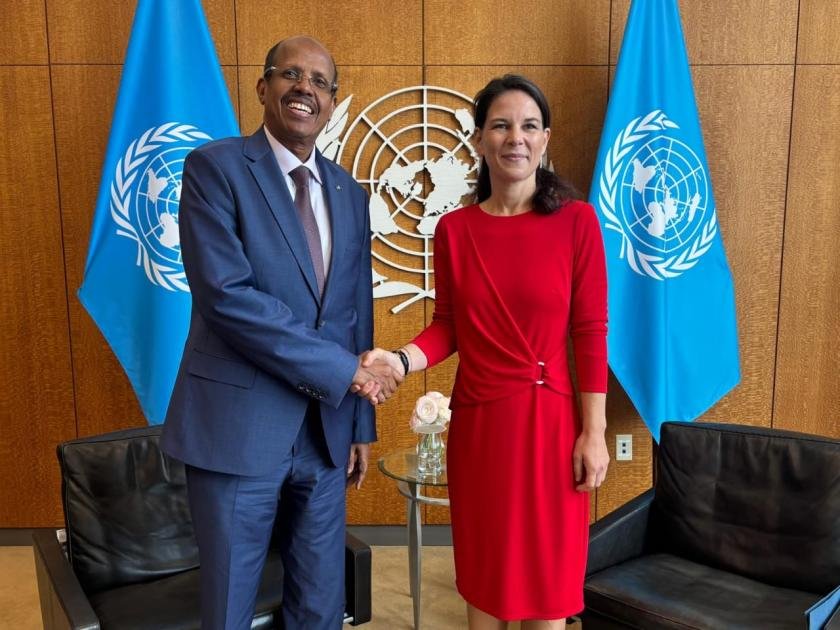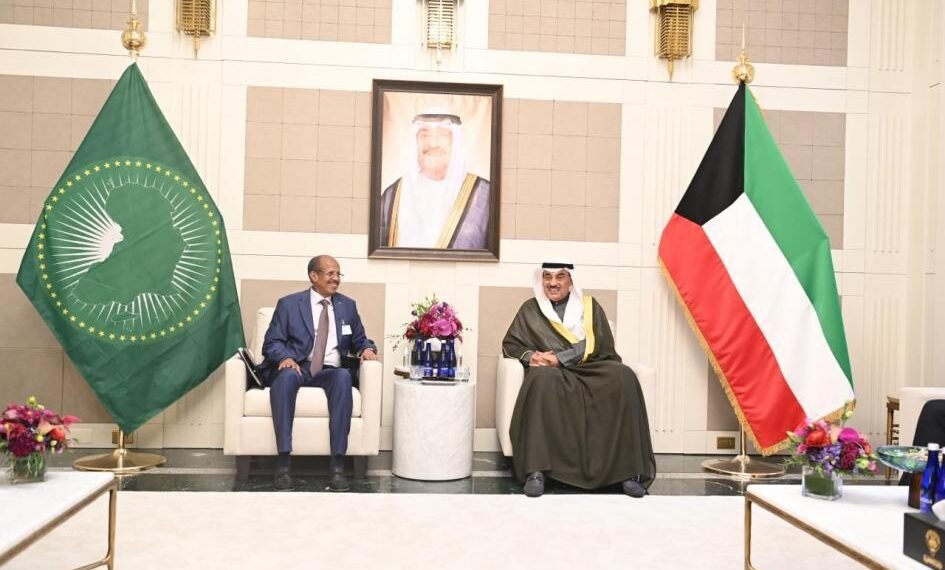His Highness Sheikh Sabah Khaled Al-Hamad Al-Sabah, Crown Prince of the State of Kuwait, has pledged to deepen Kuwait’s partnership with African nations during talks with the Chairperson of the African Union Commission, Mahmoud Ali Youssouf.
The meeting took place at Kuwait’s Permanent Mission to the United Nations in New York, on the sidelines of the 80th United Nations General Assembly.
Discussions centered on trade, infrastructure, energy, and social development, with both leaders reaffirming their commitment to building closer ties between Kuwait, the Arab nations, and Africa. Kuwait, a permanent observer at the African Union, emphasized its readiness to strengthen long-standing relations through investment and development programs.
His Highness noted that Kuwait’s enduring partnership with Africa has been underscored by diverse investments through the Kuwait Fund for Arab Economic Development (KFAED), the Kuwait Investment Authority, and contributions from the private sector. He said these efforts are aimed at fostering sustainable economic growth across the continent.
Chairperson Youssouf expressed appreciation for Kuwait’s continued support, highlighting how these investments have supported Africa’s development goals. He underscored a shared vision of enhanced cooperation, adding that the AU remains committed to deepening ties that bring mutual benefits to both regions.
Leaders Call For UN Systemic Reform
Youssouf also held discussions with H.E. Annalena Baerbock, where both stressed the importance of strengthening multilateralism to advance sustainable development and address global challenges. The AU Chairperson reiterated Africa’s priorities at the General Assembly, reaffirming support for the UN’s mandate and stressing the need for joint action on climate change, peace, and security.

On the third day of the General Assembly’s high-level debate, African leaders delivered a powerful and unified message that the United Nations must undergo meaningful reform. They argued that without change, the global order will remain unbalanced, leaving developing nations without fair representation.
African leaders highlighted real struggles on the continent, pointing to fragile economies, recurrent droughts, limited opportunities for youthful populations, and the entrenched imbalance of power within international institutions.
The calls for reform were framed as urgent and necessary for the UN to live up to its founding principles. On Thursday, leaders declared that without reform, the promise of the UN Charter would remain unfulfilled, warning that a weak United Nations cannot serve “We the peoples.”
President Umaro Sissoco Embaló of Guinea-Bissau captured the sentiment by stressing the UN’s role as a forum where all nations, regardless of size, can speak as equals. He painted a picture of a world burdened by conflict, inequality, and stalled development, noting that agencies like UNICEF and the World Food Programme provide dignity and hope but remain limited without systemic reform.
Embaló pressed for the expansion and democratization of the Security Council, insisting it must offer a genuine voice to the Global South. “The legitimacy, strength, and future of the UN lie in the inclusion and full participation of all of us in deliberations and decision-making,” he declared.
Vice President Muhammed Jallow of the Gambia echoed these calls, speaking during the general debate of the 80th session. He emphasized the Gambia’s pursuit of inclusive development, peace, and respect for fundamental freedoms, while highlighting the vulnerabilities of Global South nations to external shocks.
He pointed to challenges such as food and energy crises, rising debt, and unemployment, urging international partnerships that focus on resilience in food security, infrastructure, and implementation of the Sustainable Development Goals (SDGs).
Turning to security, Jallow said, “We call on the UN Security Council to fulfil its responsibility towards resolving the unrest in Africa and elsewhere.”
With African leaders speaking in one voice, the push for UN reform has become one of the most prominent themes of this year’s General Assembly. Their message reflected a growing determination that fairness, equity, and representation must no longer be postponed in the global order.
READ ALSO: Chief Justice Nominee Pledges Open Administration























